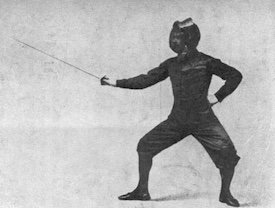I think that in the early days of audiophilia (1960’s and ‘70’s) expensive and “good” were synonymous, because to an audiophile high fidelity is good, to achieve high fidelity requires low distortion and noise and analogue components with low distortion/noise were difficult and expensive to make. However, a divergence started in the 1970’s when solid state (and later, IC) op amps started maturing, which had low distortion/noise but were not expensive to make and within a few years of it’s introduction digital technology increased this divergence dramatically. A $200 amplifier could match and in some cases actually provide higher fidelity than amps costing 50 times more. A moderately priced CD player could outperform even the most expensive turntable or cassette player and by around the mid/late 1990’s, when mass production of micro-electronics hit full swing, even extremely cheap CD players could outperform the best analogue gear. With the exception of transducers, “good” (high fidelity) gear was no longer synonymous with being expensive, expensive was only synonymous with “brand names” and was no longer correlated with fidelity but many self-styled audiophiles can’t or won’t accept that modern decorrelation.To me an audiophile buys expensive (good components) gear with a minimal interface after listening to different gear very carefully and choosing what for them needs little to no adjustment.
Very true but if their objectives do not fall under the definition or objectives of being an audiophile, then they are deceiving themselves and/or others if they then claim to be audiophiles, and it’s that deception of others that I feel perfectly justified in criticising. For example, someone might spend an inordinate amount on say an R2R/NOS DAC, a DDC and a tube amp because they like the cost, the pretty lights, the brand names or feeling of owning “luxury” products, that’s all fine in my book. It only becomes a matter for criticism IMHO if they then claim they’re achieving higher fidelity than others who’ve spent less (because they’re actually achieving less fidelity) and/or claiming to be an audiophile. Unfortunately, this probably covers the majority (or even vast majority) of those who claim to be audiophiles, in fact our example “audiophile” will not only consider and tell others they are an audiophile but probably consider themselves to be a better or more accomplished audiophile because they’ve spent so much on gear for the same or lower fidelity!I think that when audiophile claims and myths get discussed on this forum, one must be careful not to conflate criticism of those claims and myths with criticism of the manner in which people choose to enjoy the hobby of audio equipment and listening to music. Different people have different objectives; not all of it makes sense to everyone and not all of it falls under the definition or objectives of being an audiophile.
Although true, I wouldn’t put it quite that way because there’s quite a bit of additional nuance to the issue. Off the top of my head, ALL those unfounded audiophile claims & myths are actually based on false advertising/marketing to start with, and some, more ethical manufacturers end up having little/no choice but to comply with it. The most obvious example I can think of would be Lavry: Dan Lavry went to great lengths to debunk the 192kHz sampling frequency for consumers (as it is technically lower fidelity) and stated that his company would never produce a DAC that supports a 192kHz sample rate. A number of years later he did just that and was obviously reminded of his pledge. He stated he did not have the many millions it would cost to develop his own DAC chip and without exception, all the high performance audio DAC chips then available had a 192kHz sample rate, so he had no choice. There are other cases where (generally honest) manufacturers feel compelled to include some feature/option because it’s a “demand” of the audiophile market, although they are honest and state selecting that option is sub-optimal. I personally don’t feel these two examples (and other similar ones) warrant criticism, even though they are effectively “commercially exploiting unfounded audiophile claims & myths”.I think it is at the commercial exploitation of unfounded audiophile claims & myths that criticism can rightly be directed because, through advertising, it has the power to influence people's (purchase) objectives, not just only their (purchase) decisions.
G






















